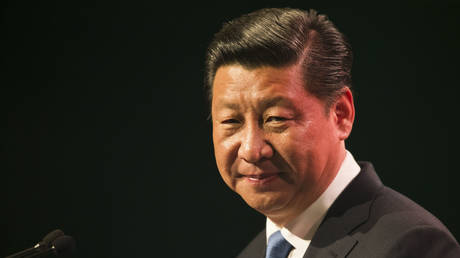ARTICLE AD BOX
Liu Liange’s verdict comes as part of widespread anti-corruption efforts in Beijing
The former head of a top Chinese bank has received a suspended death sentence for corruption, Xinhua News Agency reported on Tuesday. The verdict comes as part of a widespread anti-corruption crackdown by the authorities in Beijing.
Liu Liange, who served as chairman of the Bank of China for four years until his resignation in March 2023, was sentenced to death with a two-year reprieve for accepting bribes worth an equivalent of nearly $17 million and illegally issuing loans, according to Xinhua.
Liu announced he was stepping down several weeks before the authorities revealed that he was facing corruption charges. He was arrested in October of last year.
According to Tuesday’s ruling, all of Liu’s personal property will be confiscated, and all his illegal gains must be recovered and turned over to the state treasury.
Read more Xi Jinping announces major military overhaul
Xi Jinping announces major military overhaul
The two-year reprieve means that the sentence will only be carried out if Liu commits further crimes during the period, noted Reuters. If reprieved, the 63-year-old will serve a life sentence.
Liu's death sentence was suspended because he had cooperated with the investigations, helped return most of the stolen property, and showed remorse, according to Reuters.
Liu is the latest high-profile figure to be sentenced to death as part of widespread anti-corruption efforts ordered by President Xi Jinping targeting the country’s $60 trillion financial sector.
Former deputy central bank governor Fan Yifei was sentenced to death for bribery in October, also with a two-year reprieve.
In May, Bai Tianhui, a former executive at one of the country's largest state-controlled asset management firms, was sentenced to death for accepting bribes worth nearly $152 million.
READ MORE: Chinese officials facing new punishments
Xi has made fighting corruption a key policy issue since becoming president a decade ago. The campaign enjoys considerable public support, although critics claim it allows the president to consolidate power by replacing rivals with loyalists in key positions.
.png)
 1 hour ago
2
1 hour ago
2








 English (US)
English (US)